|
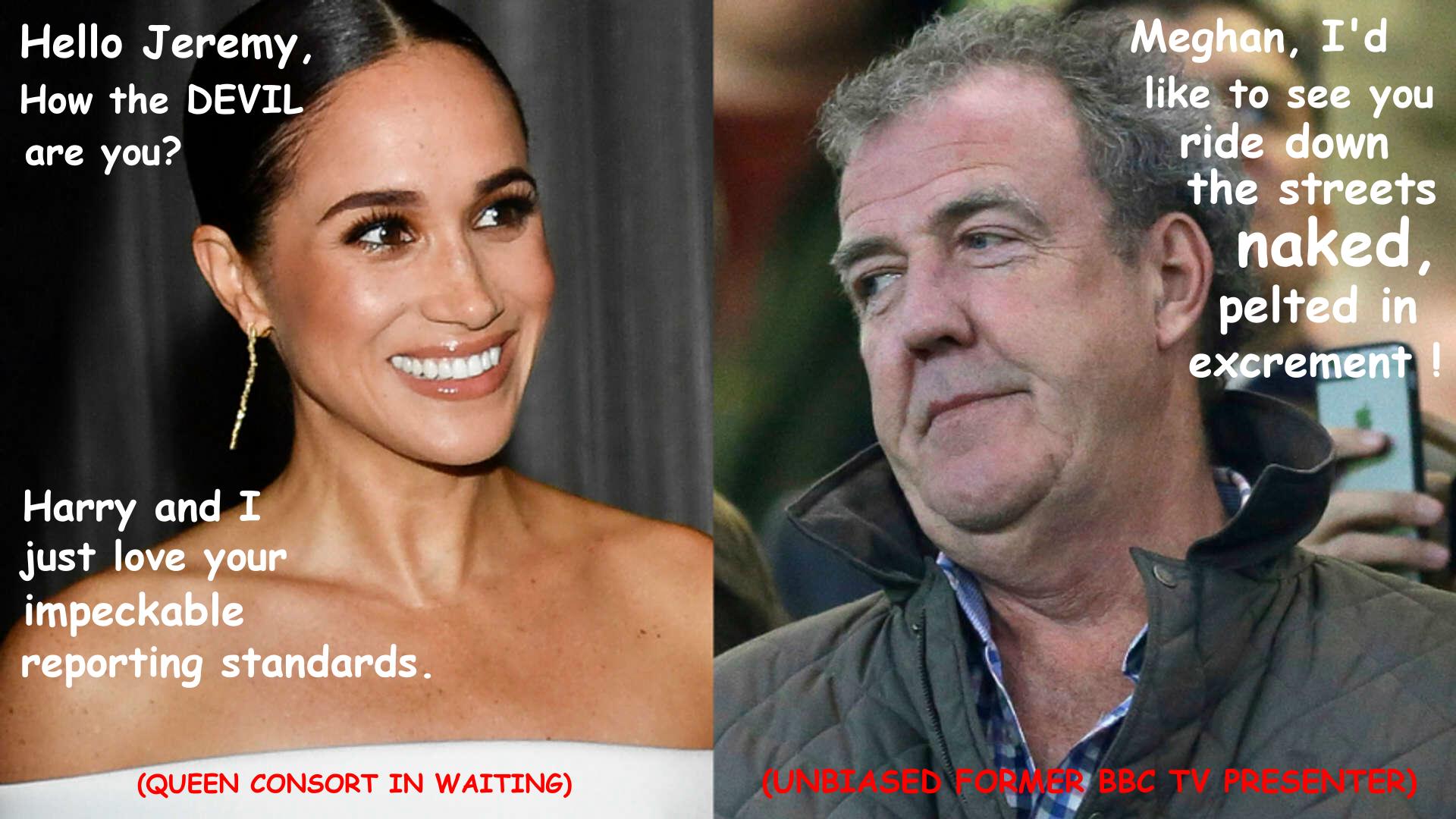
If
Jeremy Clarkson is anything to go by, as a former BBC presenter, you may
care to wonder why the British public should be charged for a service
that many do not approve of. We say it is unlawful to make a compulsory
charge to receive and impart information, where that is a Right granted
to every person as a citizen of the United Kingdom, under Articles 9 and
10 of the Human Rights Act 1998. Pay to view would be more appropriate.
That would weed out those who do not wish to participate in the subtle brainwashing
of the public, by an entity that is scrutinized by the state, for the
state. Specifically, to filter out challenge and change.
DAILY EXPRESS - BBC SLAMMED FOR LACK OF IMPARTIALITY OVER MEGHAN AND HARRY AS VIEWERS PLEAD FOR BALANCE
Samira Ahmed brought the complaints to light as part of News Watch on Saturday's BBC Breakfast. Samira confirmed a number of viewers had put forward complaints about the ongoing coverage of Harry and Meghan on the BBC but it was an interview with Nicholas Witchell which particularly led to swathes of disgruntled viewers blasting the broadcaster.
During News Watch, Samira told BBC viewers: "More episodes of the
Netflix programme Harry and Meghan were released during the week.
"We received another flurry of emails asking why the BBC had included mention of it in its programmes. We reported the reasons for that coverage last week.
"Many of the emails, like last week, were critical of the Duke and
Duchess of Sussex but this week, some were supportive with viewers unhappy with how BBC News had reported the story, particularly on BBC's News at Six."
A clip of Nicholas' comments then played out, in which he delivered a rather brutal critique of the Duke and Duchess of Sussex's claims from the documentary.
Speaking of Harry, Nicholas said on December 8: "Now, his main complaint and it is a familiar one, is of press intrusion and this suggestion that this amounts to a conspiracy between the
Palace and the press.
"That I think is where credibility is really stretched beyond what is reasonable.
"Consider one of the things that Meghan said... 'No matter what I did, they were still going to find a way to destroy me.'
"Well, the first point, who is the 'they' she's referring to? I think it's the Palace but most particularly it is to the press. But the idea that anyone was out to destroy her, frankly I think is absurd and does not stand up to proper and reasonable scrutiny.
"But they quite obviously are convinced that they were victims," Nicholas concluded without challenge.
Samira then shared viewers' complaints, including a video message from Adrian David who said: "Where was the balance?
"Along with Nicholas Witchell's snide remarks about the Duke and Duchess, it seems to be like a concerted bullying and smear campaign against the pair. Impartiality was nonexistent."
Samira then read aloud other viewers' points of view, commenting: "Other viewers sent us emails expressing similar concerns. Paul Davies said, 'It seems clear to me that Mr Witchell is unfairly defending the
Royal
Family...
"'May I suggest that the BBC ensure more balanced and sensitive reporting of these delicate issues?'"
She continued: "Helen Parks wrote, 'Mr Witchell needs to remember the importance of impartial reporting, and the key to any news report is objectivity.'
"Sharon Frater emailed, 'Well done to Harry and Meghan for lifting the lid on the monarchy and unconscious bias and racism. The immediate royals need to watch, digest and address their feelings.'"
The News Watch host did reveal the BBC had responded to the complaints from those at home regarding Meghan Markle and Prince Harry.
She revealed: "Well we asked BBC News to provide someone to answer your concerns but they sent us this statement instead...
"'We know that our audience is interested in the Royal Family and there are many strong and differing views on the claims made by Harry and Meghan in their documentary series.
"'Across the BBC, our coverage and analysis aims to explore many viewpoints and provide facts with context and informer insight.'"
The BBC stopped short of addressing Nicholas' remarks directly when asked by News Watch.
BBC Breakfast airs daily on BBC One at 6am.
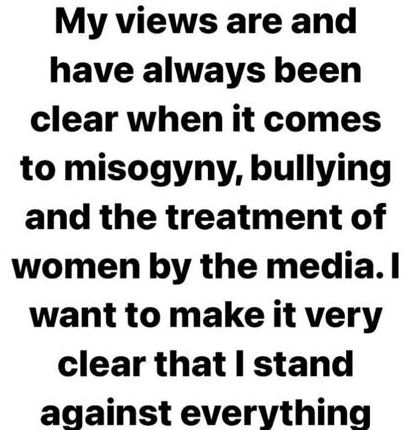
The British Broadcasting Corporation (BBC) is the national broadcaster of the United Kingdom, based at Broadcasting House in London. It is the world's oldest national broadcaster, and the largest broadcaster in the world by number of employees, employing over 22,000 staff in total, of whom approximately 19,000 are in public-sector broadcasting.
The BBC is established under a royal charter and operates under its agreement with the secretary of state for digital, culture, media and sport. Its work is funded principally by an annual television licence fee which is charged to all British households, companies, and organisations using any type of equipment to receive or record live television broadcasts and iPlayer catch-up. The fee is set by the British Government, agreed by Parliament, and is used to fund the BBC's radio, TV, and online services covering the nations and regions of the UK. Since 1 April 2014, it has also funded the BBC World Service (launched in 1932 as the BBC Empire Service), which broadcasts in 28 languages and provides comprehensive TV, radio, and online services in Arabic and Persian.
Around a quarter of the BBC's revenue comes from its commercial subsidiary BBC Studios (formerly BBC Worldwide), which sells BBC programmes and services internationally and also distributes the BBC's international 24-hour English-language news services BBC World News, and from BBC.com, provided by BBC Global News Ltd. In 2009, the company was awarded the Queen's Award for Enterprise in recognition of its international achievements.
From its inception, through the Second World War (where its broadcasts helped to unite the nation), to the popularisation of television in the post-WW2 era and the internet in the late 20th and early 21st centuries, the BBC has played a prominent role in British life and culture. It is colloquially known as the Beeb, Auntie, or a combination of both (Auntie Beeb).
The BBC is a statutory corporation, independent from direct government intervention, with its activities being overseen from April 2017 by the BBC Board and regulated by Ofcom. The chairman is Richard Sharp.
The BBC operates under a royal charter. The current charter came into effect on 1 January 2017 and runs until 31 December 2027. The 2017 charter abolished the BBC Trust and replaced it with external regulation by Ofcom, with governance by the BBC Board.
Under the royal charter, the BBC must obtain a licence from the home secretary. This licence is accompanied by an agreement which sets the terms and conditions under which the BBC is allowed to broadcast.
It may occur to the reader, that if operating by virtue of a Royal Charter, that an immediate conflict of interests arises, in that the Corporation will not want to be siding with anyone openly challenging the system. That simply would not do.
MI5 VETTING POLICY - SUBVERSIVES
From as early as the 1930s until the 1990s, MI5, the British domestic intelligence service, engaged in vetting of applicants for BBC positions, a policy designed to keep out persons deemed subversive. In 1933, BBC executive Colonel Alan Dawnay began to meet the head of MI5, Sir Vernon Kell, to informally trade information; from 1935, a formal arrangement was made wherein job applicants would be secretly vetted by MI5 for their political views (without their knowledge). The BBC took up a policy of denying any suggestion of such a relationship by the press (the existence of MI5 itself was not officially acknowledged until the Security Service Act 1989).
This relationship garnered wider public attention after an article by David Leigh and Paul Lashmar appeared in The Observer in August 1985, revealing that MI5 had been vetting appointments, running operations out of Room 105 in Broadcasting House. At the time of the exposé, the operation was being run by Ronnie Stonham. A memo from 1984 revealed that blacklisted organisations included the far-left Communist Party of Great Britain, the Socialist Workers Party, the Workers Revolutionary Party and the Militant Tendency, as well as the far-right National Front and the British National Party. An association with one of these groups could result in a denial of a job application.
In October 1985, the BBC announced that it would stop the vetting process, except for a few people in top roles, as well as those in charge of Wartime Broadcasting Service emergency broadcasting (in event of a nuclear war) and staff in the BBC World Service. In 1990, following the Security Service Act 1989, vetting was further restricted to only those responsible for wartime broadcasting and those with access to secret government information. Michael Hodder, who succeeded Stonham, had the MI5 vetting files sent to the BBC Information and Archives in Reading, Berkshire.
REVENUES
Some may liken the BBC to a gigantic propaganda machine, aimed at persuading the voting public that all is well in Blighty.
When in fact, corruption reigns supreme in Parliament and the House of
Lords, with Lady
Michelle Mone, being a case in point, alleged to have made £29
million pounds from VIP Covid19
contracts, that looks to us suspiciously like Procurement Fraud, or
other profiteering, but may yet turn out to have a plausible explanation.
According to the BBC's 2018/19 Annual Report, its total income was £4.8 billion (£4,889 billion) a decrease from £5,062 billion in 2017/18 – partly owing to a 3.7% phased reduction in government funding for free over-75s TV licences, which can be broken down as follows:
£3.690 billion in licence fees collected from householders;
£1.199 billion from the BBC's commercial businesses and government grants some of which will cease in 2020
The licence fee has, however, attracted criticism. It has been argued that in an age of multi-stream, multi-channel availability, an obligation to pay a licence fee is no longer appropriate. The BBC's use of private sector company Capita Group to send letters to premises not paying the licence fee has been criticised, especially as there have been cases where such letters have been sent to premises which are up to date with their payments, or do not require a TV licence.
The BBC uses advertising campaigns to inform customers of the requirement to pay the licence fee. Past campaigns have been criticised by Conservative MP Boris Johnson and former MP Ann Widdecombe for having a threatening nature and language used to scare evaders into paying. Audio clips and television broadcasts are used to inform listeners of the BBC's comprehensive database. There are a number of pressure groups campaigning on the issue of the licence fee.
The majority of the BBC's commercial output comes from its commercial arm BBC Worldwide who sell programmes abroad and exploit key brands for merchandise. Of their 2012/13 sales, 27% were centred on the five key "superbrands" of Doctor Who, Top Gear, Strictly Come Dancing (known as Dancing with the Stars internationally), the BBC's archive of natural history programming (collected under the umbrella of BBC Earth) and the (now sold) travel guide brand Lonely Planet.
NEWS
BBC News is the largest broadcast news gathering operation in the world, providing services to BBC domestic radio as well as television networks such as the BBC News, BBC Parliament and BBC World News. In addition to this, news stories are available on the BBC Red Button service and BBC News Online. In addition to this, the BBC has been developing new ways to access BBC News and as a result, has launched the service on BBC Mobile, making it accessible to mobile phones and PDAs, as well as developing alerts by email, on digital television, and on computers through a desktop alert.
Ratings figures suggest that during major incidents such as the 7 July 2005 London bombings or royal events, the UK audience overwhelmingly turns to the BBC's coverage as opposed to its commercial rivals. On 7 July 2005, the day that there were a series of coordinated bomb blasts on London's public transport system, the BBC Online website recorded an all time bandwidth peak of 11 Gb/s at 12.00 on 7 July. BBC News received some 1 billion total hits on the day of the event (including all images, text, and HTML), serving some 5.5 terabytes of data. At peak times during the day, there were 40,000-page requests per second for the BBC News website. The previous day's announcement of the 2012 Olympics being awarded to London caused a peak of around 5 Gbit/s. The previous all-time high at BBC Online was caused by the announcement of the Michael Jackson verdict, which used 7.2 Gbit/s.
CONTROVERSIES
Throughout its existence, the BBC has faced numerous accusations regarding many topics: the Iraq war, politics, ethics and religion, as well as funding and staffing. It also has been involved in numerous controversies because of its coverage of specific news stories and programming. In October 2014, the BBC Trust issued the "BBC complaints framework", outlining complaints and appeals procedures. However, the regulatory oversight of the BBC may be transferred to Ofcom. The British "House of Commons Select Committee on Culture Media and Sport" recommended in its report "The Future of the BBC", that OFCOM should become the final arbiter of complaints made about the BBC.
The BBC has long faced accusations of liberal and left-wing bias. Accusations of a bias against the Premiership of Margaret Thatcher and the Conservative Party were often made against the BBC by members of that government, with
Margaret Thatcher herself considering the broadcaster's news coverage to be biased and irresponsible. In 2011, Peter Sissons, a main news presenter at the BBC from 1989 to 2009, said that "at the core of the BBC, in its very DNA, is a way of thinking that is firmly of the Left". Another BBC presenter, Andrew Marr, commented that "the BBC is not impartial or neutral. It has a liberal bias, not so much a party-political bias. It is better expressed as a cultural liberal bias." Former BBC director Roger Mosey classified it as "liberal defensive." In 2022, the BBC chairman, Richard Sharp, acknowledged that "the BBC does have a liberal bias", and added that "the institution is fighting against it".
Conversely, writing for The
Guardian, the left-wing columnist Owen Jones stated "the truth is the BBC is stacked full of rightwingers," and cited as an example of bias its employment of "ultra-Thatcherite" Andrew Neil as a politics presenter. A 2018 opinion poll by BMG Research found that 40% of the British public think that the BBC is politically partisan, with a nearly even split between those that believe it leans to the left or right.
Paul Mason, a former Economics Editor of the BBC's Newsnight programme, criticised the BBC as "unionist" in relation to its coverage of the Scottish independence referendum campaign and said its senior employees tended to be of a "neo-liberal" point of view. The BBC has also been characterised as a pro-monarchist institution. The BBC was accused of propaganda by conservative journalist and author Toby Young due to what he believed to be an anti-Brexit approach, which included a day of live programming on migration.
Conspiracy theorists in Iran, led by Supreme Leader Ali Khamenei, have regarded the BBC as an instrument of British political machinations. The Minister of Culture Hossein Saffar Harandi declared BBC Persian TV illegal in 2009, citing "the BBC's history of creating chaos in Iran, and its efforts to set the various strata of Iranian society against each other". In 2011, Intelligence Minister Heydar Moslehi said the BBC's real identity was "Baha’i and Zionist" and he accused it of helping direct the 2009 Iranian presidential election protests. BBC Persian journalists have faced online attacks allegedly linked to Iran's government, which has led the BBC to file 4 complaints to the UN addressing the issue. A 2021 poll from the Center for International and Security Studies at Maryland had less respondents in Iran rating news from the BBC as accurate compared to news from domestic TV and social media.
In 2008, the BBC was criticised by some for referring to the men who carried out the November 2008 Mumbai attacks as "gunmen" rather than "terrorists". In protest against the use of the word "gunmen" by the BBC, journalist Mobashar Jawed "M.J." Akbar refused to take part in an interview following the Mumbai terror attacks, and criticised the BBC's reportage of the incident. British parliamentarian Stephen Pound supported these claims, referring to the BBC's whitewashing of the terror attacks as "the worst sort of mealy mouthed posturing. It is desperation to avoid causing offence which ultimately causes more offence to everyone."
A BBC World Service newsreader who presented a daily show produced for Kyrgyzstan was claimed to have participated in an opposition movement with the goal of overthrowing the government led by president Kurmanbek Bakiyev. The BBC presenter resigned from his post in 2010 once the allegations of his participation in the revolution became public.
In February 2021, following Ofcom's decision to cancel the licence of China Global Television Network (CGTN) and the BBC's coverage of the persecution of ethnic minority Uighurs in China, the Chinese authorities banned BBC World News from broadcasting in the country. According to a statement from China's National Radio and Television Administration (NRTA), BBC World News reports on China "infringed the principles of truthfulness and impartiality in journalism" and also "harmed China's national interests". Radio Television Hong Kong (RTHK) suspended BBC World News the day after the ban took effect on the mainland.
CRITICISM
THATCHERISM
Accusations of a left-wing bias were often made against the corporation by members of Margaret Thatcher's 1980s Conservative government. Norman Tebbit called the BBC the "Stateless Person's Broadcasting Corporation" because of what he regarded as its unpatriotic coverage of the Falklands War, and Conservative MP Peter Bruinvels called it the "Bolshevik Broadcasting Corporation". Steve Barnett wrote in The Observer in 2001 that in 1983, Stuart Young, the "accountant and brother of one of Thatcher's staunchest cabinet allies", David Young, was appointed as BBC chairman. After him, in 1986, came Marmaduke Hussey, a "brother-in-law of another Cabinet Minister.... According to the then-Tory party chairman, Norman Tebbit, Hussey was appointed 'to get in there and sort the place out'".
Controversies continued with the likes of the Nationwide general election special with Thatcher in 1983, a Panorama documentary called Maggie's Militant Tendency, the Real Lives interview with Martin McGuinness, the BBC's coverage of the US 1986 Bombing of Libya and the Zircon affair. In 1987, the Director-General of the BBC, Alasdair Milne, was forced to resign. Thatcher later said: "I have fought three elections against the BBC and don't want to fight another against it". In 2006, Tebbit said: "The BBC was always against Lady Thatcher".
Mark Thompson, the Director General of the BBC, said in 2010, "In the BBC I joined 30 years ago [as a production trainee, in 1979], there was, in much of current affairs, in terms of people's personal politics, which were quite vocal, a massive bias to the left. The organisation did struggle then with impartiality".
CONSERVATISM AND CONSPIRACY TO UPHOLD PRESENT POLITICAL SYSTEM
A study by Cardiff University academics, which was funded by the BBC Trust, was published in August 2013 and examined the BBC's coverage of a broad range of issues. One of the findings was the dominance of party political sources; in coverage of immigration, the EU and religion, they accounted for 49.4% of all source appearances in 2007 and 54.8% in 2012. The data also showed that the Conservative Party received significantly more airtime than the Labour Party. In 2012, Conservative leader and then
Prime Minister David Cameron outnumbered Labour leader Ed Miliband in appearances by a factor of nearly four to one (53 to 15), and governing Conservative cabinet members and ministers outnumbered their Labour counterparts by more than four to one (67 to 15).
A former Director General of the BBC, Greg Dyke, criticised the BBC as part of a "Westminster conspiracy" to maintain the British political system.
Before to the 2019 general election, the BBC was criticised for biased coverage that favoured the ruling Conservative Party. For instance, issue was taken with a clip used from a BBC Question Time leader's special episode in which the part showing audience laughter at Prime Minister Boris Johnson's response to a certain question was edited out. BBC officials addressed the issue and admitted their mistake. Furthermore, the BBC was accused of subjecting Jeremy Corbyn and Jo Swinson to a gruelling interview by Andrew Neil but not requiring Johnson to go through the same and of arranging it beforehand. The Guardian columnist Owen Jones also took issue with the BBC rescinding its policy of not letting Johnson be interviewed by Marr unless he went through one with Neil. The BBC defended its decision to waive the requirement by citing national interest amidst a terror attack in London on 29 November 2019.
Some commentators, such as Peter Oborne, have argued that there is a culture of "client journalism" which has flourished in recent years due to a closeness between the BBC and the ruling Conservative Party, which has led to their bias in favour of the establishment. For example, from 2008 to 2017, Robbie Gibb was head of the BBC Westminster and therefore in charge of the BBC's political programming. His brother, Nick Gibb, is a Conservative MP and Minister for Schools, and Robbie Gibb took a job with Theresa May as Director of Communications immediately after resigning from the BBC. The incoming Director-General as of September 2020, Tim Davie, is a former Conservative Party councilor. In addition, the new Chairman of the BBC, Richard Sharp, has donated over £400,000 to the Conservative Party since 2001. Among journalists, BBC Political Editor Laura Kuenssberg and ITV Political Editor Robert Peston have also been criticized for perceived "client journalism", as well as uncritically repeating stories from anonymous government sources as news, which later transpired to be false.
One might imagine the lack of coverage on the Abolition of the Monarchy, given that they operate under a Royal Charter.
Other than the obvious conflicts of interest, much of the BBC news, filtered and vetted as it is, can be relied on - allowing for the
skewed point of view. And, provided that one looks at the coverage from other more independent news
organizations, to be able to read between the lines.
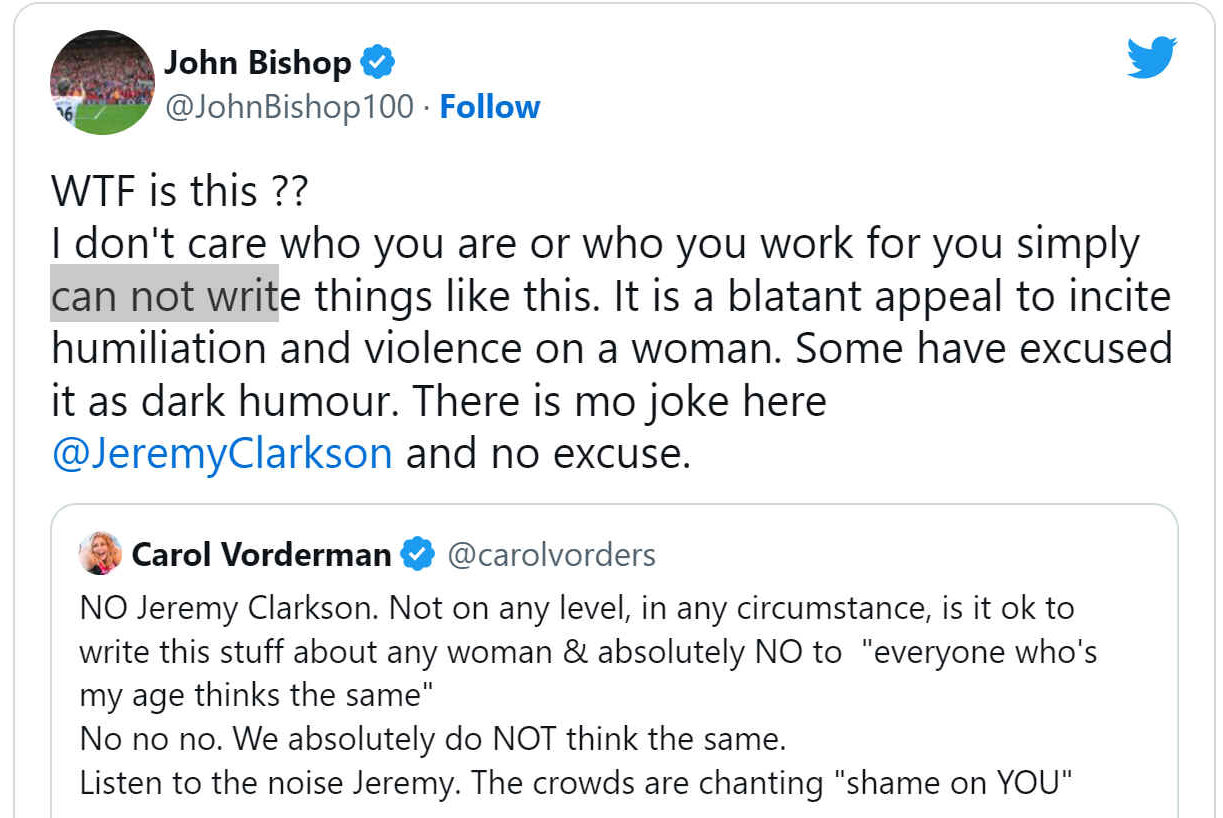
...
The class battle continues, with an institution built on slavery,
manufactured pomp and ceremonies, designed to brainwash citizens from
birth, into accepting the status quo, without questioning the obvious
flies in the ointment, supported by many in the media unquestioningly as
they clutch their Gongs. With, we wonder, dear Jeremy angling for a
knighthood perhaps? No, never!
Apart
from revenues from films and television coverage of the Firm, for how
much longer can we afford injustice and corruption at the level now
becoming plainer from those in power being show for what they really
are. Incompetent, for one thing, when it come to the cost of living, and
brazen in reaping wealth for the privileged few, at the expense of the
working men and women. When it should be, lower taxes, food aplenty and
cheap energy for affordable homes.
Once
we have a just society, then sure, those who work hard to make a few bob
on the side, should be rewarded, but perhaps not by multi billions in
the bank. Because, those sums were generated by exploiting those less
fortunate. Profiteering. In exactly the same way that the Royals, became
Royal.
Potentially,
Harry and Meghan, if they returned, might bring a new perspective to
justice and corruption, being anti discrimination. They have been the subject of such
abuses, so more motivated to want to bring about changes than William and
Catherine, or at least, get the next generation (royals included) thinking about what the
institution of Monarchy was built on. Maybe, then even leading a
transition to Abolition, in a manner that benefits those who toil just
to survive. And those with visions of change for the better.
The
likes of Jeremy Clarkson, who has reaped personal success and rewards
from the BBC TV Top Gear fame, held to partly responsible for holding
back the infrastructure and development of zero emission electric
cars, may not understand, or may choose not to understand,
impartiality when reporting. Something the BBC has been accused of
recently.
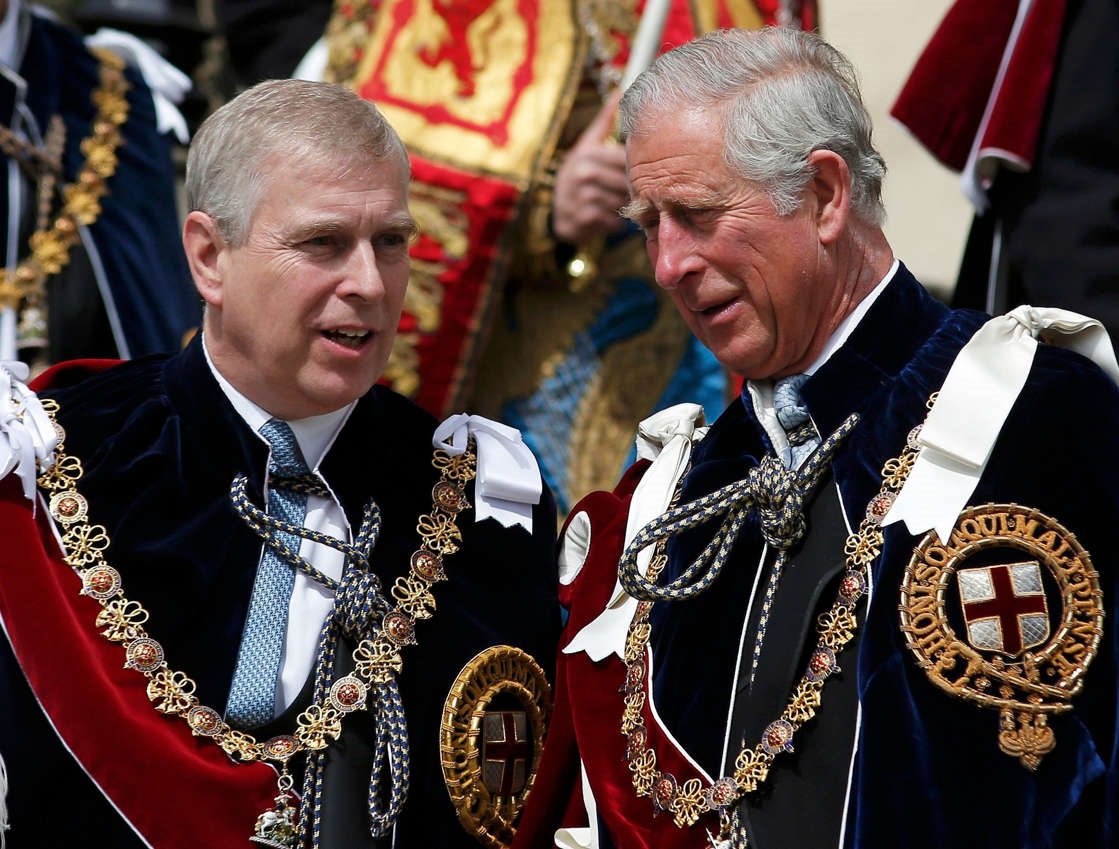
It
appears from the latest moves by the King, that he may not be either fit
enough, or have the spare mental capacity to deal with a complex range
of legal matters. Whereas, his mother, Queen Elizabeth is known to have dealt
with numerous complex matters herself, although shying away from helping
to resolve corruption at Wealden District
Council. Hence, even she was
thought to have been lacking when it came to issues that showed the
State to be wanting.
Dutch Prime Minister Mark Rutte apologized Monday 18 December 2022, on behalf of his government for the Netherlands’ historical role in slavery and the slave trade, despite calls for him to delay the long-awaited statement.
“Today I apologize,” Rutte said in a 20-minute speech that was greeted with silence by an invited audience at the National Archive.
Rutte went ahead with the apology even though some activist groups in the Netherlands and its former colonies had urged him to wait until July 1 of next year, the anniversary of the abolition of slavery 160 years ago. Activists consider next year the 150th anniversary because many enslaved people were forced to continue working in plantations for a decade after abolition.
He said the government would establish a fund for initiatives to help tackle the legacy of slavery in the Netherlands and its former colonies.
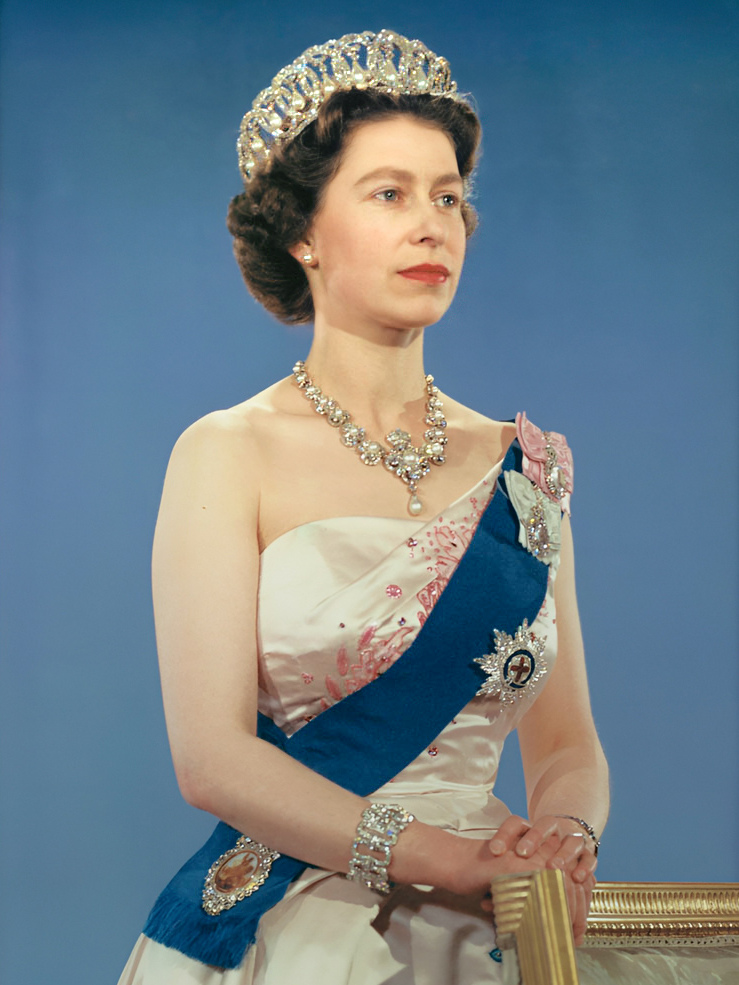
Corruption
lurks in every corridor of local and national buildings. Queen Elizabeth
was asked for help. She declined. The duty to provide an effective
remedy, now rests with King
Charles.
Incompatibility
in Human Rights terms, is where one statute does not comply with HR
statute. The European Convention does include Article 13, the right to
an effective remedy.
In
her lifetime, the Queen did not apologize for slavery in the British
colonies, or offer some form of assistance retrospectively. Britain’s leading Black newspaper called for the royal family to apologise and pay reparations for slavery amid backlash about Prince Charles' guest editing the paper.
Britain’s involvement in the transatlantic slave trade was an appalling atrocity that has left an “indelible stain” on the world, Prince Charles has acknowledged.
In June of 2022, Prince Charles told Commonwealth leaders he cannot describe "the depths of his personal sorrow" at the suffering caused by the slave trade.
Speaking in Rwanda, he said the potential of the family of nations could only be realised by acknowledging the wrongs that had "shaped our past".
Charles added it was up to states to decide if they remained monarchies or became republics in the future.
There was no apology as such for Britain's participation in the slave trade.
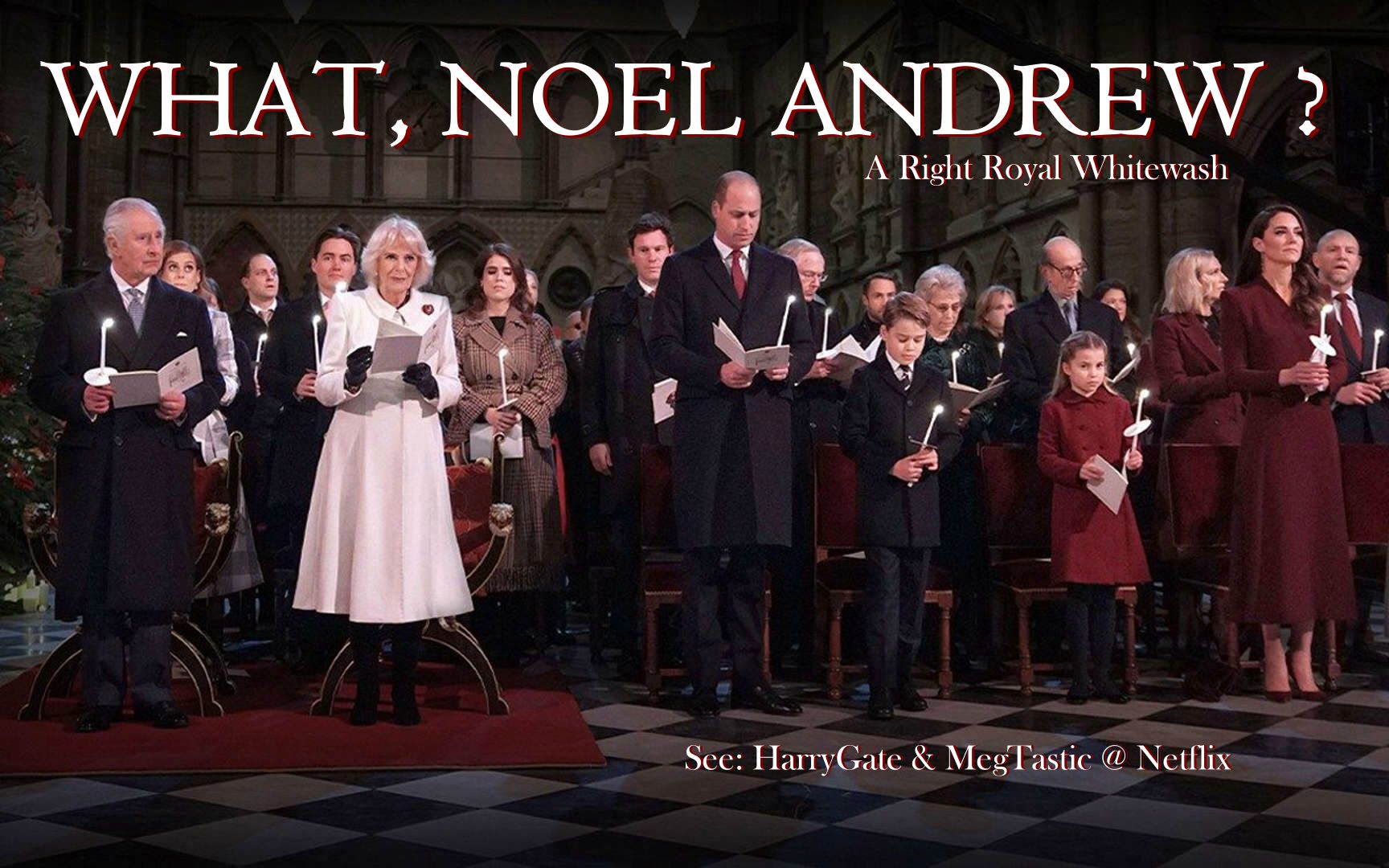
|



